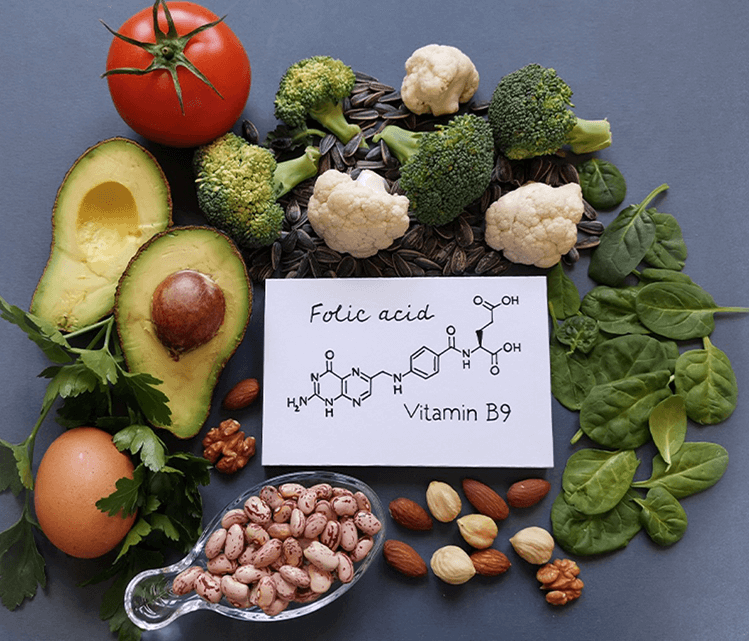Folic acid provides numerous significant health advantages and is essential for various bodily functions. It is a water-soluble form of vitamin B9, also referred to as folate. This vitamin is crucial for the synthesis and repair of nucleic acids, including RNA and DNA, as well as for the production of red blood cells. Daily intake of folic acid is necessary since the body does not have the capacity to store it. This nutrient is particularly important for women who are pregnant or planning to conceive, as it aids in the prevention of birth defects. The health benefits of folic acid are elaborated upon below.
Benefits of Folic Acid
- Normal Fetal Development – Folic acid is vital for normal fetal development, as a deficiency can result in neural tube defects.
- Sperm Health – Folic acid contributes to improved sperm health and motility.
- Heart Health – It assists in converting homocysteine into methionine, an essential amino acid, thereby helping to mitigate cardiovascular issues.
- Normal Cholesterol Levels – Folic acid aids in lowering LDL cholesterol levels in the body.
- Neurological Support – It supports neural health, benefiting memory retention and reducing the risk of Alzheimer’s disease.
- Reduction of Muscular Degeneration Risk – Folic acid also plays a role in decreasing the likelihood of muscular degeneration.
Natural Sources of Folic Acid
- Spinach
- Asparagus
- Broccoli
- Citrus fruits
- Beans
- Peas
- Lentils
- Seeds
- Nuts
- Cauliflower
- Beets
- Corn
- Milk
- Kidney beans
- Lettuce
- Cauliflower
- Egg yolk
- Brussels sprouts
- Cabbage
- Sunflower seeds
- Oranges
- Many fruits like papaya and kiwi have moderate amounts of folic acids.
Folic Acid Deficiency Anemia
Anemia occurs when individuals do not receive adequate levels of folic acid. In pregnant women, a deficiency in folic acid can lead to congenital anomalies. The following are the signs and symptoms linked to folic acid deficiency:
- Generalized weakness
- Tiredness
- Decreased appetite
- Unintentional weight loss
Folic acid deficiency can lead to various health issues, including:
- An elevated risk of heart attack.
- An increased likelihood of stroke.
- A heightened risk of certain cancers, such as stomach cancer.
- A greater chance of male infertility.
- An increased susceptibility to allergic diseases.
- Symptoms of depression.
- Decreased bone density.
Adverse Effects of Folic Acid
Excessive consumption of folic acid may raise the risk of developing rectal or colon cancer. Additionally, an overabundance of folic acid can result in:
- Bloating
- Nausea
- Vomiting
- Skin reactions
- Decreased appetite
- Seizures
Daily Folic Acid Recommendations
Infants:
- For those aged 0-6 months, the requirement is 65 mcg (micrograms).
- For those aged 7-12 months, the requirement is 80 mcg.
Children:
- For ages 1-3 years, the requirement is 150 mcg.
- For ages 4-8 years, the requirement is 200 mcg.
- For ages 9-13 years, the requirement is 300 mcg.
Teenagers:
- For those aged 14-18 years, the requirement is 400 mcg.
Adults:
- For both males and females aged 19 years and older, the requirement is 400 mcg.
- For pregnant women, the folic acid requirement is 600 mcg.
- For breastfeeding women, the requirement is 500 mcg.



